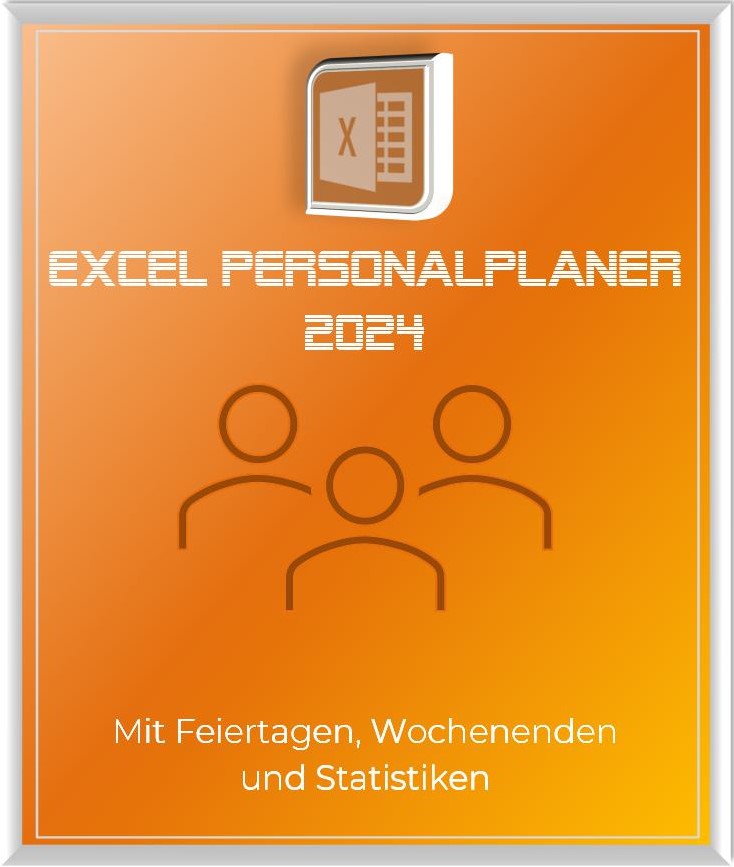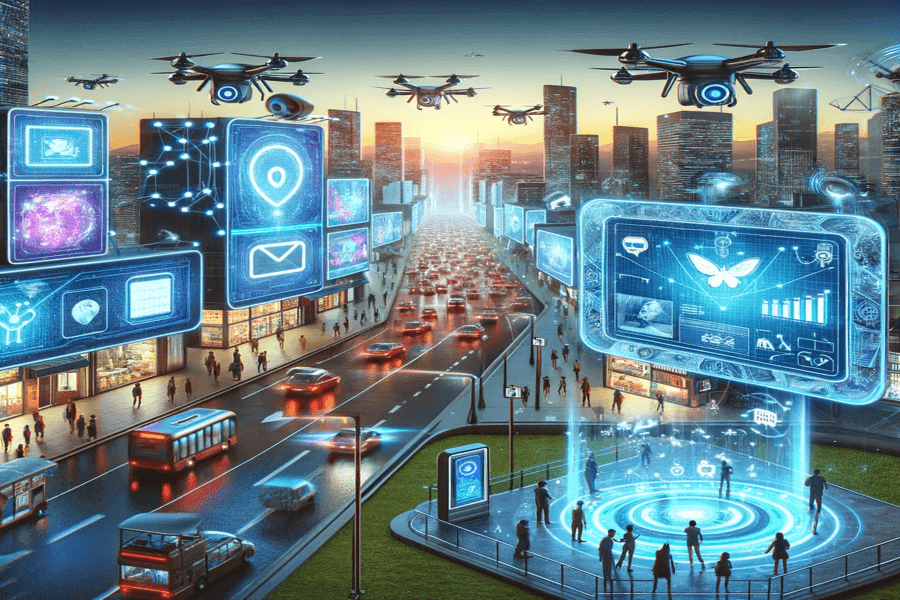What does digital competence actually mean?
In a world where digital technologies have permeated so deeply into our everyday lives, it’s no wonder that “digital literacy” has become a common yet abstract term. After all, what does it actually mean to be digitally competent?
In the 21st century, digital literacy has become a basic requirement. It is increasingly seen as necessary in order to be able to survive in the world of work, but also to find one’s way around in everyday life and to be able to take part in social debates in a critical and informed manner. We dive deeper into the definition and discover what lies behind this multi-faceted term.

What does digital competence actually mean?
In a world where digital technologies have permeated so deeply into our everyday lives, it’s no wonder that “digital literacy” has become a common yet abstract term. After all, what does it actually mean to be digitally competent?
In the 21st century, digital literacy has become a basic requirement. It is increasingly seen as necessary in order to be able to survive in the world of work, but also to find one’s way around in everyday life and to be able to take part in social debates in a critical and informed manner. We dive deeper into the definition and discover what lies behind this multi-faceted term.

Definition of digital competence
Definition of digital competence
Put simply, the basis of digital competence is the understanding and use of technology. In its simplest form, this means being able to operate devices such as computers, tablets and smartphones. It also means understanding software and applications, and having skills to access the internet, send email, and perform basic digital tasks.
A deeper analysis
But digital competence goes beyond mere technological knowledge. It also includes critical and social aspects such as:
- Understanding privacy and security
- The ability to critically evaluate digital information
- Awareness of the social and cultural impact of digital technologies.
In view of the rapid digitization of society, digital competence is more important than ever. It is needed in many different contexts, from the workplace to school, and is increasingly seen as a fundamental life skill. In the workplace, digital literacy is often seen as a required skill, and many companies are investing in training their employees in this area.
Above all, digital competence also plays a crucial role in education. Curricula and educational standards around the world are increasingly integrating aspects of digital literacy to prepare students for the demands of the digital world.
The impact on society
Digital literacy has far-reaching implications for society. It enables citizens to participate in digital culture, stay safe online and make informed decisions. It can help to bridge the digital divide and create a fairer society . We will go into the challenges that arise here in more detail later on.
The way forward
While the importance of digital literacy is widely recognized, there are still challenges in nurturing and developing these skills. It is crucial that educational institutions, business and politics work together to ensure that everyone has the opportunity to develop and improve their personal digital competence.
Put simply, the basis of digital competence is the understanding and use of technology. In its simplest form, this means being able to operate devices such as computers, tablets and smartphones. It also means understanding software and applications, and having skills to access the internet, send email, and perform basic digital tasks.
A deeper analysis
But digital competence goes beyond mere technological knowledge. It also includes critical and social aspects such as:
- Understanding privacy and security
- The ability to critically evaluate digital information
- Awareness of the social and cultural impact of digital technologies.
In view of the rapid digitization of society, digital competence is more important than ever. It is needed in many different contexts, from the workplace to school, and is increasingly seen as a fundamental life skill. In the workplace, digital literacy is often seen as a required skill, and many companies are investing in training their employees in this area.
Above all, digital competence also plays a crucial role in education. Curricula and educational standards around the world are increasingly integrating aspects of digital literacy to prepare students for the demands of the digital world.
The impact on society
Digital literacy has far-reaching implications for society. It enables citizens to participate in digital culture, stay safe online and make informed decisions. It can help to bridge the digital divide and create a fairer society . We will go into the challenges that arise here in more detail later on.
The way forward
While the importance of digital literacy is widely recognized, there are still challenges in nurturing and developing these skills. It is crucial that educational institutions, business and politics work together to ensure that everyone has the opportunity to develop and improve their personal digital competence.
Digital competence in education
Digital competence in education
The digital revolution has changed almost every aspect of life, including the way we learn. Schools and educational institutions have increasingly turned to using digital technologies to enhance the learning process. Digital competence has become an essential aspect of education in the 21st century.
A necessary skill for the 21st century
Digital literacy, defined as the ability to use digital technologies effectively and critically, is a key skill for the 21st century. It involves more than just the ability to operate a device. It also includes understanding data security and privacy, being aware of the ethical dimensions of the digital world and being able to think critically about digital content and question content!
In an increasingly connected world, these skills are essential for participating in many aspects of daily life. At school, they can make learning easier and improve preparation for a digital world of work.
The digital transformation in education
The influence of digital technologies on the education system is far-reaching. They enable new forms of teaching and learning, such as online learning, flipped classrooms and collaborative learning platforms. They open up access to a variety of learning resources and enable individual learning paths. This digital transformation requires a corresponding adjustment of teaching methods and the educational environment. Teachers must be able to use digital technologies effectively and guide their students in doing so. At the same time, schools and educational institutions need to provide a safe and supportive digital environment.
Challenges and opportunities
Despite the potential of digital technologies in education, there are some challenges.
- Access to technology
- The digital divide (differences between population groups within a society)
- Privacy concerns
- The need to develop digital skills in both students and teachers.
Nevertheless, the odds outweigh the odds. Digital technologies can personalize and enrich learning, increase student motivation and engagement, and enable new forms of collaboration. You can help students develop the skills needed for the digital world and prepare them for future careers.
The digital revolution has changed almost every aspect of life, including the way we learn. Schools and educational institutions have increasingly turned to using digital technologies to enhance the learning process. Digital competence has become an essential aspect of education in the 21st century.
A necessary skill for the 21st century
Digital literacy, defined as the ability to use digital technologies effectively and critically, is a key skill for the 21st century. It involves more than just the ability to operate a device. It also includes understanding data security and privacy, being aware of the ethical dimensions of the digital world and being able to think critically about digital content and question content!
In an increasingly connected world, these skills are essential for participating in many aspects of daily life. At school, they can make learning easier and improve preparation for a digital world of work.
The digital transformation in education
The influence of digital technologies on the education system is far-reaching. They enable new forms of teaching and learning, such as online learning, flipped classrooms and collaborative learning platforms. They open up access to a variety of learning resources and enable individual learning paths. This digital transformation requires a corresponding adjustment of teaching methods and the educational environment. Teachers must be able to use digital technologies effectively and guide their students in doing so. At the same time, schools and educational institutions need to provide a safe and supportive digital environment.
Challenges and opportunities
Despite the potential of digital technologies in education, there are some challenges.
- Access to technology
- The digital divide (differences between population groups within a society)
- Privacy concerns
- The need to develop digital skills in both students and teachers.
Nevertheless, the odds outweigh the odds. Digital technologies can personalize and enrich learning, increase student motivation and engagement, and enable new forms of collaboration. You can help students develop the skills needed for the digital world and prepare them for future careers.
The importance of digital skills in the world of work
The importance of digital skills in the world of work
The digital revolution has fundamentally changed the world of work. Virtually every job these days requires some level of digital literacy. Companies are increasingly looking for employees who move safely in the digital landscape. Digital competence is therefore no longer just a “nice-to-have”, but a basic requirement for professional success!
Digital competence – a must for the modern working world
The way we work has changed dramatically. More than ever, we rely on technology to get tasks done more efficiently, to communicate, and to manage information. This includes basic skills such as using email and Office applications, but also advanced skills such as data analysis, programming and an understanding of artificial intelligence.
Companies of all sizes and industries are looking for employees who can handle these technologies. A lack of digital competence can not only affect productivity, but also significantly the global competitiveness of a company. Additionally, employees with strong digital skills can help identify new business opportunities and create innovative solutions.
Digital competence as a pioneer
Digital competence opens doors to new career opportunities. In the increasingly digitized economy, areas such as cybersecurity, data science, digital marketing and software development are growing rapidly. Employees who demonstrate competence in these areas are in high demand and often have better career prospects.
But digital competence is also becoming increasingly important in more traditional roles. Even professions that used to have little to do with technology, such as agriculture or crafts, are becoming increasingly digitized. Employees who understand this development and can adapt to it have a clear competitive advantage!
Digital competence as part of the corporate culture
However, the importance of digital competence goes beyond the individual level. It also plays an important role in shaping corporate culture. Companies that foster a culture of digital literacy encourage their employees to explore new technologies, think creatively, and develop innovative solutions.
Such a culture clearly contributes to the fact that a company quickly adapts to changes, increases its efficiency and increases its competitiveness. It can also help attract and retain talented employees who are comfortable in a digital environment and who have the skills needed to thrive in the modern workplace.
The digital revolution has fundamentally changed the world of work. Virtually every job these days requires some level of digital literacy. Companies are increasingly looking for employees who move safely in the digital landscape. Digital competence is therefore no longer just a “nice-to-have”, but a basic requirement for professional success!
Digital competence – a must for the modern working world
The way we work has changed dramatically. More than ever, we rely on technology to get tasks done more efficiently, to communicate, and to manage information. This includes basic skills such as using email and Office applications, but also advanced skills such as data analysis, programming and an understanding of artificial intelligence.
Companies of all sizes and industries are looking for employees who can handle these technologies. A lack of digital competence can not only affect productivity, but also significantly the global competitiveness of a company. Additionally, employees with strong digital skills can help identify new business opportunities and create innovative solutions.
Digital competence as a pioneer
Digital competence opens doors to new career opportunities. In the increasingly digitized economy, areas such as cybersecurity, data science, digital marketing and software development are growing rapidly. Employees who demonstrate competence in these areas are in high demand and often have better career prospects.
But digital competence is also becoming increasingly important in more traditional roles. Even professions that used to have little to do with technology, such as agriculture or crafts, are becoming increasingly digitized. Employees who understand this development and can adapt to it have a clear competitive advantage!
Digital competence as part of the corporate culture
However, the importance of digital competence goes beyond the individual level. It also plays an important role in shaping corporate culture. Companies that foster a culture of digital literacy encourage their employees to explore new technologies, think creatively, and develop innovative solutions.
Such a culture clearly contributes to the fact that a company quickly adapts to changes, increases its efficiency and increases its competitiveness. It can also help attract and retain talented employees who are comfortable in a digital environment and who have the skills needed to thrive in the modern workplace.
Challenges and opportunities of digital competence
Challenges and opportunities of digital competence
One of the biggest challenges related to digital literacy is the digital divide. This refers to inequality in terms of access to digital technology and the ability to use it effectively. While some people and communities have near limitless access to digital resources and technology, others are left behind.
Basic digital infrastructure is often lacking in low- and middle-income countries, but also in disadvantaged communities within wealthy countries. But even if the technical infrastructure is in place, the necessary skills to use it effectively are often lacking. This “skills gap” can have a significant impact on social and economic mobility and contributes to reinforcing existing inequalities.
Lack of digital skills in the population
Another challenge is the lack of digital skills in large parts of the population. Many people feel overwhelmed by the rapid technological development and can hardly keep up with the constant innovations. The result is a “digital insecurity” that can lead to people turning away from digital services and technologies.
There is an urgent need for action to improve digital skills in the population. This includes measures such as teaching digital skills in schools and adult education institutions, but also targeted information and support services for older people and other vulnerable groups.
The role of politics and education
In order to use the opportunities of digital competence and to master the challenges, a concerted (coordinated) approach of politics, education and society is necessary. There is a need for strategic promotion of digital skills in all age and population groups. In addition, access to digital resources and technologies should be improved and awareness of the importance of digital skills should be raised.
Digital competence is not a one-time achievement, but a lifelong learning process. It requires constant adaptation to new technologies and digital trends. It is therefore important to create and promote learning opportunities that meet individual needs and abilities. Only in this way can digital competence unfold its full effect and contribute to a more just digital society.
One of the biggest challenges related to digital literacy is the digital divide. This refers to inequality in terms of access to digital technology and the ability to use it effectively. While some people and communities have near limitless access to digital resources and technology, others are left behind.
Basic digital infrastructure is often lacking in low- and middle-income countries, but also in disadvantaged communities within wealthy countries. But even if the technical infrastructure is in place, the necessary skills to use it effectively are often lacking. This “skills gap” can have a significant impact on social and economic mobility and contributes to reinforcing existing inequalities.
Lack of digital skills in the population
Another challenge is the lack of digital skills in large parts of the population. Many people feel overwhelmed by the rapid technological development and can hardly keep up with the constant innovations. The result is a “digital insecurity” that can lead to people turning away from digital services and technologies.
There is an urgent need for action to improve digital skills in the population. This includes measures such as teaching digital skills in schools and adult education institutions, but also targeted information and support services for older people and other vulnerable groups.
The role of politics and education
In order to use the opportunities of digital competence and to master the challenges, a concerted (coordinated) approach of politics, education and society is necessary. There is a need for strategic promotion of digital skills in all age and population groups. In addition, access to digital resources and technologies should be improved and awareness of the importance of digital skills should be raised.
Digital competence is not a one-time achievement, but a lifelong learning process. It requires constant adaptation to new technologies and digital trends. It is therefore important to create and promote learning opportunities that meet individual needs and abilities. Only in this way can digital competence unfold its full effect and contribute to a more just digital society.
Popular Posts:
Integrate and use ChatGPT in Excel – is that possible?
ChatGPT is more than just a simple chatbot. Learn how it can revolutionize how you work with Excel by translating formulas, creating VBA macros, and even promising future integration with Office.
Create Out of Office Notice in Outlook
To create an Out of Office message in Microsoft Outlook - Office 365, and start relaxing on vacation
The best backup solutions for your data
Keep your data safe and secure! Discover our best backup solutions for your valuable information now. Because safety is the be-all and end-all - and we have the perfect tips.
Internet Addiction – A serious look at a growing problem
Internet addiction is just as serious an illness as alcohol or drug addiction. Just that this is a mental illness. In this article we want to go into the phenomenon in more detail and provide assistance.
Main keyboard shortcuts in Windows 10/11
Entdecken Sie die wichtigsten Shortcuts in Windows 11, um Ihre Produktivität zu steigern. Von allgemeinen Befehlen bis hin zu spezifischen Fenster-Management- und System-Shortcuts, lernen Sie, wie Sie mit diesen Tastenkombinationen effizienter arbeiten können.
Encrypt USB stick – These options are available
Protecting sensitive data is essential. Encrypting USB sticks provides an extra layer of security. Whether it's built-in software, operating system features, third-party software, or hardware encryption, there are numerous options.
Popular Posts:
Integrate and use ChatGPT in Excel – is that possible?
ChatGPT is more than just a simple chatbot. Learn how it can revolutionize how you work with Excel by translating formulas, creating VBA macros, and even promising future integration with Office.
Create Out of Office Notice in Outlook
To create an Out of Office message in Microsoft Outlook - Office 365, and start relaxing on vacation
The best backup solutions for your data
Keep your data safe and secure! Discover our best backup solutions for your valuable information now. Because safety is the be-all and end-all - and we have the perfect tips.
Internet Addiction – A serious look at a growing problem
Internet addiction is just as serious an illness as alcohol or drug addiction. Just that this is a mental illness. In this article we want to go into the phenomenon in more detail and provide assistance.
Main keyboard shortcuts in Windows 10/11
Entdecken Sie die wichtigsten Shortcuts in Windows 11, um Ihre Produktivität zu steigern. Von allgemeinen Befehlen bis hin zu spezifischen Fenster-Management- und System-Shortcuts, lernen Sie, wie Sie mit diesen Tastenkombinationen effizienter arbeiten können.
Encrypt USB stick – These options are available
Protecting sensitive data is essential. Encrypting USB sticks provides an extra layer of security. Whether it's built-in software, operating system features, third-party software, or hardware encryption, there are numerous options.












































